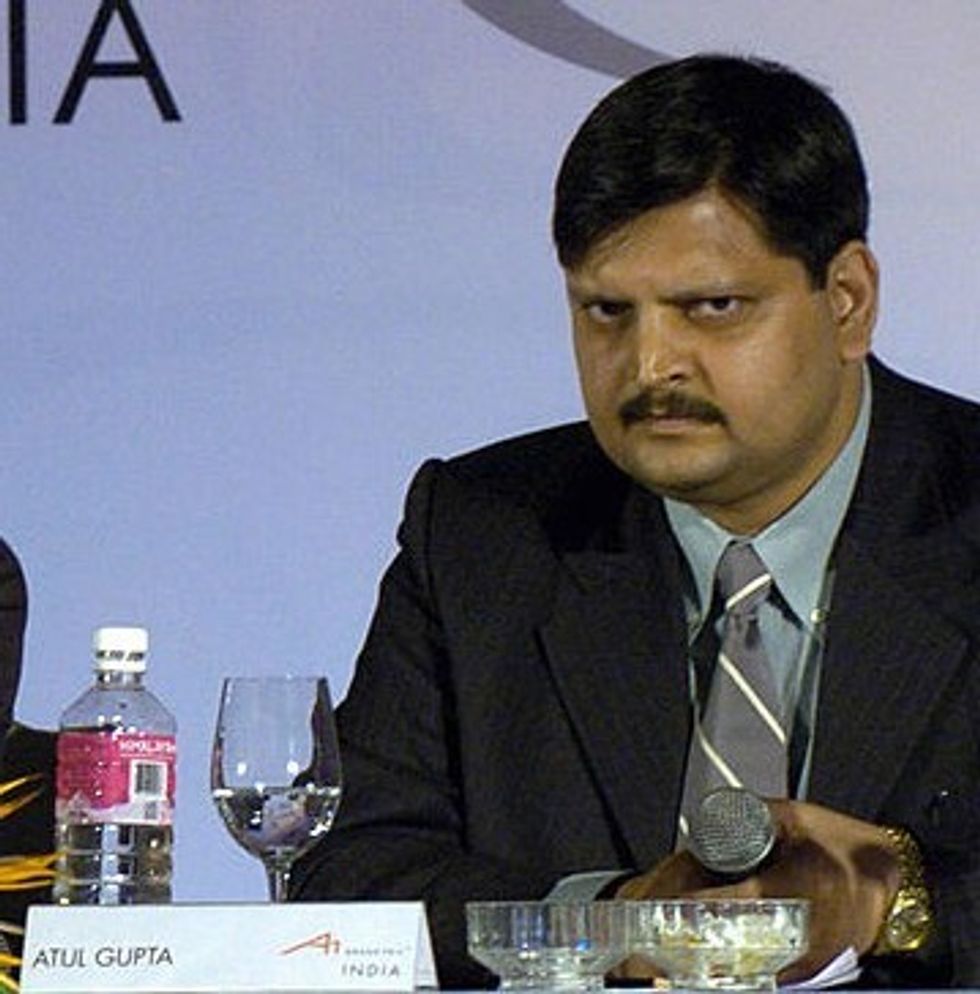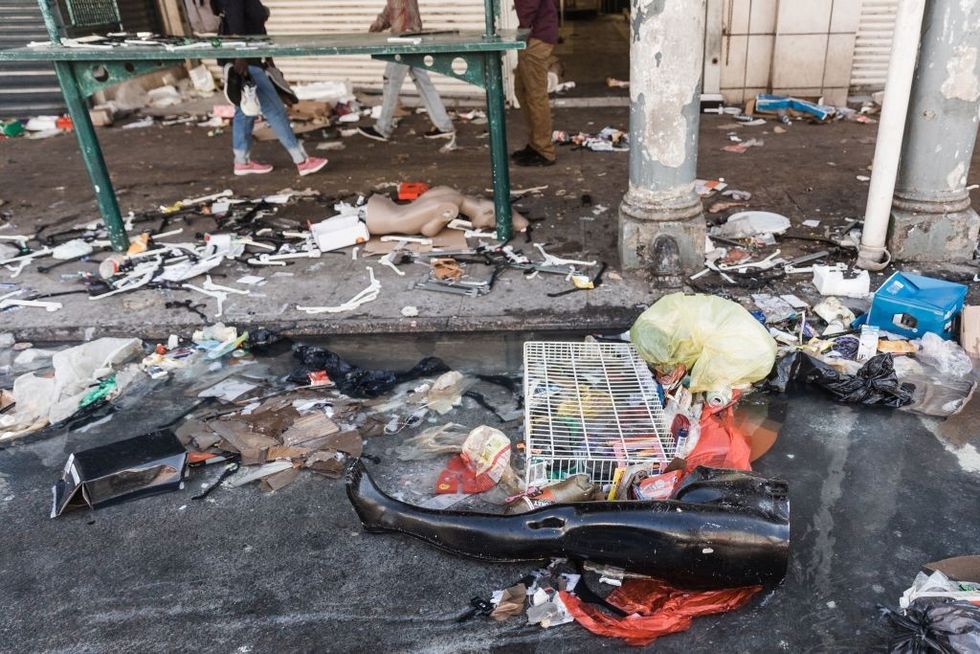SOUTH AFRICA’S former president Jacob Zuma allowed an Indian business family to plunder state resources and influence policy decisions, an investigation has found.
The first report of the South African Commission of Inquiry into State Capture highlighted Zuma’s influence in supporting the now-defunct newspaper The New Age (TNA) amid what was described as "systemic corruption".
The newspaper was started by three Gupta brothers - Ajay, Atul and Rajesh - originally from Saharanpur in the north Indian state of Uttar Pradesh - who fled South Africa after allegedly looting billions from state enterprises.
They are now believed to be in Dubai as South African authorities seek their extradition to face criminal charges. They have denied any wrongdoing.
Commission chairperson and acting chief justice Raymond Zondo handed over the inquiry report to president Cyril Ramaphosa on Tuesday (4) evening.

It said Guptas wielded “great influence” over Zuma as they set about looting billions from state enterprises before fleeing the country.
“The evidence before the commission paints a picture of a calculated strategy by the Guptas to appropriate public funds from state-owned enterprises.
“It was key to their efforts to have facilitators within the state-owned enterprises (SOEs) and government departments, such as the Government Communication Information Services (GCIS), who would ensure that the entities committed millions of rands to TNA despite there being no discernible value for the entities or government departments,” the report said.
“The influence they exerted over former President Zuma was considerable. They managed to ensure that a well-performing and principled public servant was removed at lightning speed when he refused to accede to their demands to divert millions of rands of public money to enrich their media business,” it said.
This was a reference to the resistance that the Guptas met when they allegedly tried to coerce GCIS head, Themba Maseko, to divert the entire 600-million-rand (£27.91m) budget to TNA. Maseko was dismissed at the instruction of Zuma.
“Former President Zuma replaced Mr Maseko with a facilitator, in the form of Mr Mzwanele Manyi. During Mr Manyi's term as Director-General of GCIS, millions of rands were spent on TNA in circumstances where there was no credible readership information nor certified circulation figures for the newspaper.
“It is inconceivable that this would have been allowed to occur if Mr Maseko had remained at the helm of GCIS,” the report said.
"State capture"
The commission also found that senior officials, including some board members at SOEs, were complicit in irregular transfers of huge amounts to TNA through contracts that were adjusted to misrepresent the value of the contracts to watchdog bodies.
“The contracts concluded by the SOEs were often patently irregular and wasteful by definition because their value simply could not be established.
“The TNA investigation shows that state capture thrived at our country's SOEs despite the fact that the necessary laws to prevent it were in place. The Public Finance Management Act (PFMA) clearly and definitively made every one of the TNA contracts unlawful.
“State capture thrived because the people given power and authority in the SOEs simply flouted its terms. One way to prevent this in the future is to ensure that those who ignored their legal obligations are held to account for their conduct,” the commission said.
‘State capture’ refers to systemic political corruption with private interests influencing government decision-making processes.
“It is recommended that the law enforcement agencies should investigate a possible crime of corruption against Mr Tony (Rajesh) Gupta on the basis of Mr (Vuyisile) Kona's evidence that he offered him initially 100,000 rands (£4,652) and later 500,000 rands (£23,261) in their meeting at (the Gupta residential compound in) Saxonwold (in Johannesburg) on or about 29 October 2012,” the report stated.
Kona testified that after he refused to accept these bribes from Gupta, he was fired as the acting chair of the state-owned South African Airways board.

Two further parts of the report will be submitted to Ramaphosa by the end of February.
Zuma, 79, became post-apartheid South Africa's fourth president in May 2009, but his presidency became stained by a reputation for corruption. He has denied any wrongdoing. Zuma repeatedly refused to testify to the commission and in July was jailed for contempt of court.
His imprisonment sparked violent protests that devolved into rioting and looting in his home region, KwaZulu-Natal, and spread to the financial hub Johannesburg.
(Agencies)






 Apsana Begum
Apsana Begum










